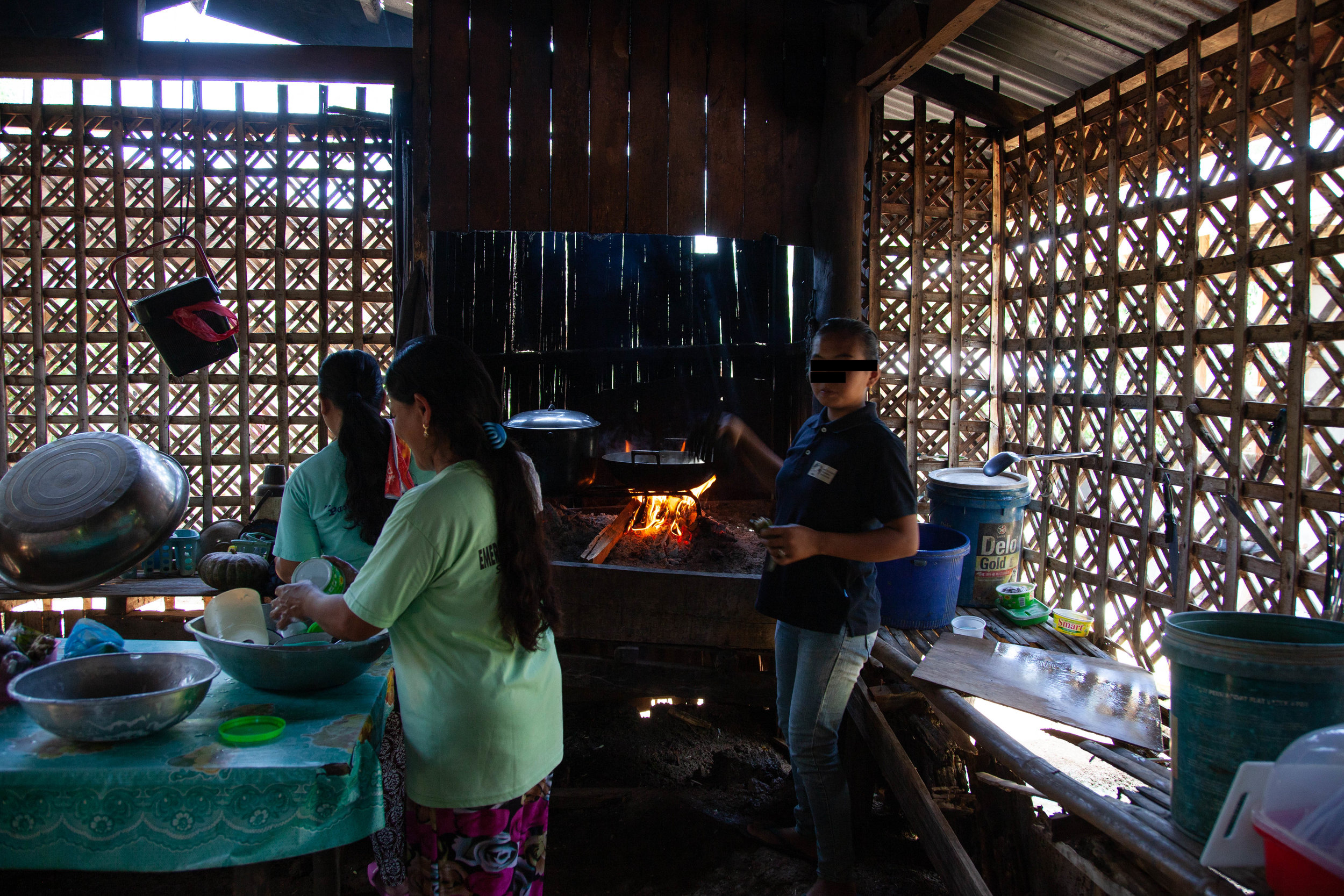As our van stumbled over the rocky road, dust poured in through the cracks. We continued on like this, our van rattling its way through farm land and small mountains for 45 minutes. The cell phone signal went out. Still we continued.
“This field is where the rebel armies would pass through when the government was chasing them,” one of the locals informed us as we looked out over green fields of cassava that underlined blue valleys and grey mountains in the distance. “They would come from that direction and disappear into the valley…”
This area is favorable for rebel armies and for good reason. It is a converging point for multiple provinces, making it hard for local governments to pursue them. It is a remote area with steep hills, valleys, and woods, making it easy to disappear. It is a conflicted area, with sharply divided ideologies between religions, languages, ethnicities, and politics. Predominantly Muslim villages lie within view of predominantly Christian villages yet they might as well be oceans apart. They are seemingly separated by only a valley, but there is more to it than that.
They are separate by decades of prejudice and conflict. Many lives have been lost to this conflict. Many people still keep their guns nearby. That is what makes the couple we were visiting today so different. Ian and his wife refuse to keep a gun despite understanding the dangers of where they live. They lead a simple life. Their small bamboo house is partially open to the wind and some rooms have mud floors. Although they may not have much by Western standards, they have not let that stop them from blessing others. Even after all their children have grown and moved away, Ian and Lynn, with the support of Project AK-47, have invited 2 students from a nearby Muslim village to live with them so they can continue their education. This is unheard of in this predominantly Christian village.
In the nearby Muslim village, education only covers the first few grades. If a student wants to continue their education, they must move to another village with a school, but that isn’t an option for most students given the division between villages and ethnic groups. It wasn’t easy for Ian at first. Many of the locals doubted the wisdom of housing children from a Muslim village. Many of the locals mistrusted both him and the students. But being here now, the impact is evident.
We watched these two students laugh and joke with their friends as they played volleyball. We watched how the local community had accepted them as their own and were building the first step of a bridge between the two cultures. The impact is evident in the students’ lives too. Although both of them come from poverty, one of them has already managed to save some money and is beginning to lend money to his friends to start small businesses. The impact is spreading in their own village too. When they visit home they bring with them knowledge they have gained about gardening and things that they have learned in school to share. We sat with Ian to ask why he invited these children that he was hosting. He shared with us, “I am doing this to help because to really love to help those who are in need…I don’t like that many children grow up without vision or without plans for the future.” When we asked him about his own plans for the future he responded, “I really plan to have 100 children here.” Ian carries the DNA of Project AK-47. We are proud supporters of his family and these students, and we hope his dream will one day come true.

AK-47 is in this for the long game, and it’s support is important to us. Thank you for sharing the importance of this ministry
Wonderful! Made me smile 🙂